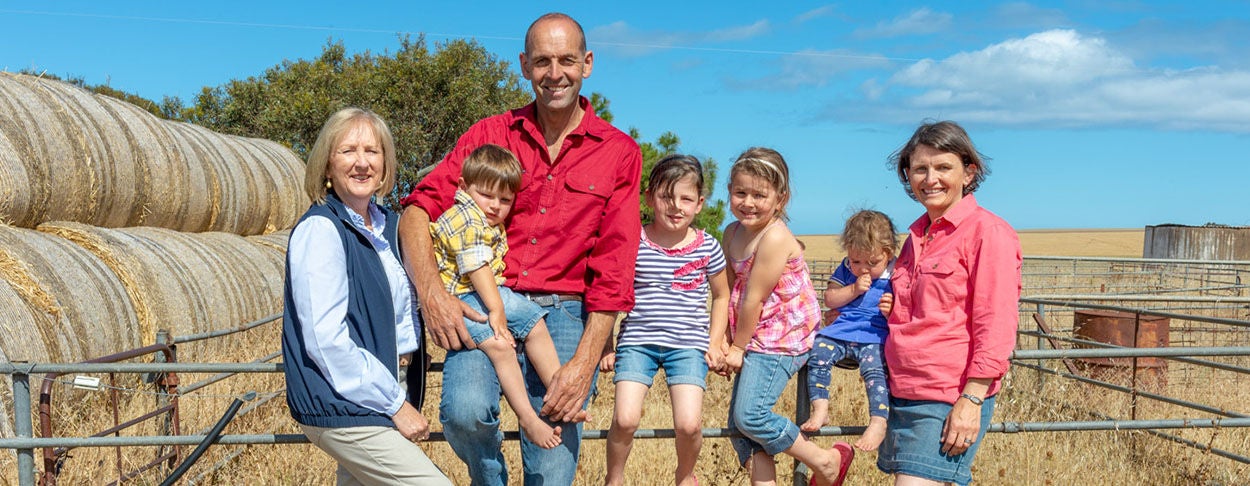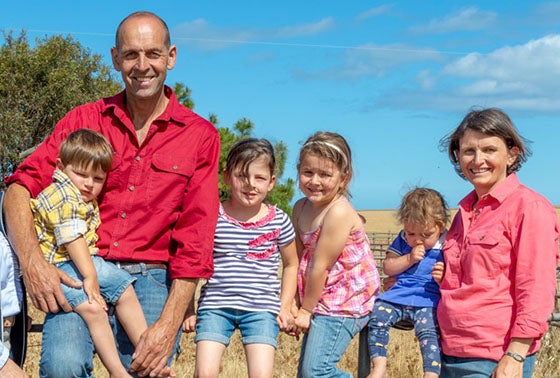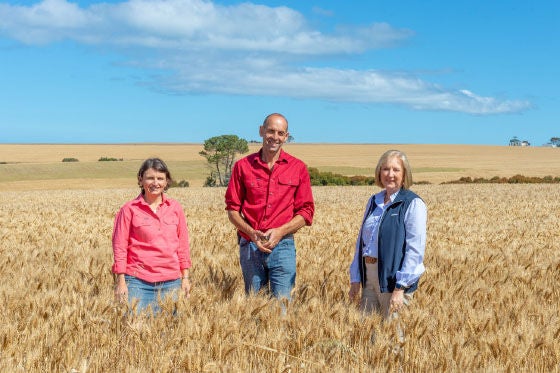Posted by on
29/05/2019
When South Australian farmer Mark Modra talks about his cropping and livestock enterprise, there are common threads throughout: sustainability, simplicity, resilience.
These guiding principles position his robust farming system to adapt and respond to challenges.
Mark, his wife Tamara and their four young children live near Port Lincoln and farm 2000 hectares across five properties on the lower Eyre Peninsula, with input from Mark’s father Theo and a growing workforce.
The family originally ran sheep on Thistle Island (off the coast of Port Lincoln) but sold in the 1980s and bought a mainland farm.
After two decades of continuous cropping in the 400-500mm rainfall zone, they reintroduced sheep in the early 2000s. Their system is now 70% cropping (on a canola/cereal/legume rotation) and 30% livestock (Merino ewes producing cross-bred lambs).
Sheep provide income diversity and play an important role in creating a resilient farming system.
“We were concerned about the sustainability of continuous cropping in terms of herbicide resistance and nutrition, especially nitrogen,” Mark said. “We shifted back into livestock for the rotational benefits of including a pasture in the system for a non-selective weed control option.”

Knocking out resistance
Alternatives to herbicides have been a long-term focus for Mark, who studied non-chemical weed control for his 2004 Nuffield Scholarship.
While it is driven by his desire to create a low-input farming system which endures environmental and social challenges (such as concerns about chemical use in food production), there is also an economic benefit.
“Farmers have little control of price or yield but we can control our overheads by creating a more robust system that minimises reliance on inputs,” Mark said.
“Through my Nuffield research, I saw how farmers across the world rely on the drum to control weeds. Even when new herbicides come along, it’s only a matter of time until resistance becomes an issue again if we continue to rely solely on chemicals.”
Mark is counter-acting herbicide resistance on his farm with a chaff cart, which he tows behind his header to collect the chaff output which contains weed seeds.
The cart is emptied along controlled traffic lines during harvest and grazed after summer. This accessible fodder has not only doubled summer stocking capacity but helps remove weed seeds from the paddock and has curbed reliance on herbicide use.
Any remaining chaff residue mulches down, strategically placed to reduce erosion in hill paddocks, and can be targeted during summer spraying.
It’s just another way to get the balance right between grazing and cropping.
Mark also has his eye on developments in farming research which suit mixed farming systems, such as new germplasms for pasture which could help build pasture systems to control weeds and put nitrogen back into depleted cropping soils.
Dirty work
Soil health is always front of mind for the Modras.
Their farms range from productive red-brown earth with high water holding capacity (100mm-plus of rain) through to poorer buckshot gravel and sand which only retain 25mm of moisture.
“We are trying different strategies to modify less productive soils, such as deep ripping, subsoil amelioration and spading,” Mark said.
Crop performance has jumped in the short term – up to 40% yield improvement one to two years after intervention – but Mark needs a longer-term solution to make the investment worthwhile.
As well as matching strategies to soil type, he must also factor in the impact of intervention on the rest of his farming system. For example, deep ripping plays havoc on the trafficability of paddocks so he avoids ripping over controlled traffic lines.
“Everything must be in balance,” he said.

